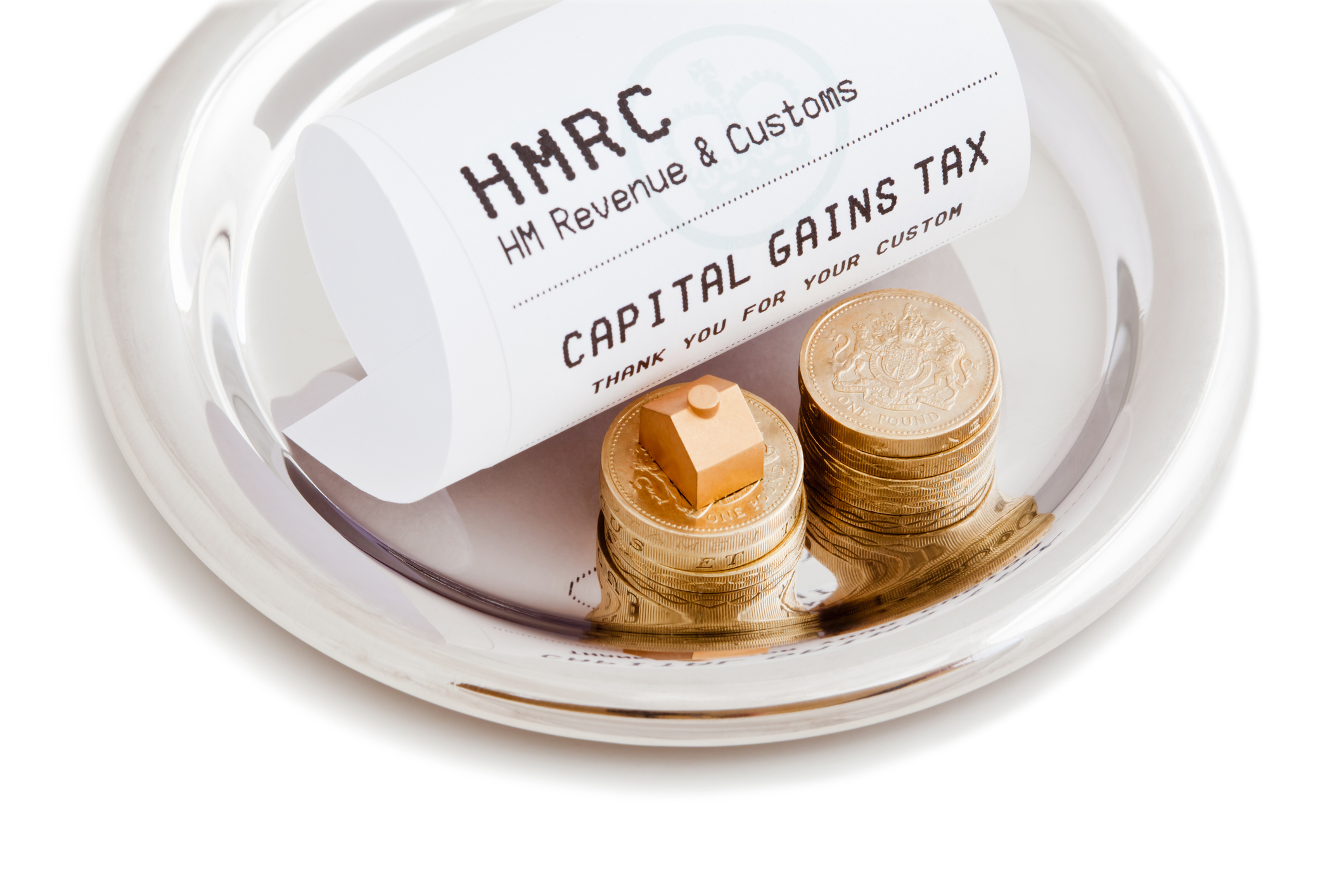Autumn Budget 2024: capital gains tax raised from today
Chancellor Rachel Reeves has increased capital gains tax in her first fiscal statement - here is what it means for you


Get the latest financial news, insights and expert analysis from our award-winning MoneyWeek team, to help you understand what really matters when it comes to your finances.
You are now subscribed
Your newsletter sign-up was successful
Want to add more newsletters?

Twice daily
MoneyWeek
Get the latest financial news, insights and expert analysis from our award-winning MoneyWeek team, to help you understand what really matters when it comes to your finances.

Four times a week
Look After My Bills
Sign up to our free money-saving newsletter, filled with the latest news and expert advice to help you find the best tips and deals for managing your bills. Start saving today!
Capital gains tax (CGT) is set to rise but property investors have been spared from extra charges.
Chancellor Rachel Reeves used her first Budget today to outline £40 billion worth of tax rises.
Her aim was to plug gaps in public finances that the Labour government claims were left by the Tories.
MoneyWeek
Subscribe to MoneyWeek today and get your first six magazine issues absolutely FREE

Sign up to Money Morning
Don't miss the latest investment and personal finances news, market analysis, plus money-saving tips with our free twice-daily newsletter
Don't miss the latest investment and personal finances news, market analysis, plus money-saving tips with our free twice-daily newsletter
While promising to protect “working people” from tax rises, Reeves did focus on the wealth and assets of higher earners, as many expected.
The Budget document said capital gains tax (CGT) would rise to ensure “asset owners pay their fair share whilst keeping the UK tax system internationally competitive”.
When is capital gains tax rising?
Reeves confirmed in her Budget that CGT will rise immediately.
This helps stop a potential rush of people looking to cash in their assets before rates change.
From today, the Budget has increased the lower rate of CGT for basic-rate taxpayers from 10% to 18% and the rate for higher earners from 20% to 24%.
This will apply to the sale of shares and funds that you don’t hold in an ISA tax wrapper.
In some good news for landlords, the chancellor said CGT rates on property sales would remain the same, at 18% and 24% respectively. Property investors were hit another way though with stamp duty on additional property purchases rising from 3% to 5%.
There were fears that charges when selling a business would be hiked, and the Treasury said CGT rates for business asset disposal relief and investors’ relief will also rise gradually to 14% from 6 April 2025 and match the main lower rate of 18% from 6 April 2026.
Who pays capital gains tax?
CGT is a tax paid on the profit from certain assets.
It is paid on profits earned from investments such as shares or funds from outside an ISA or when you sell a business or additional property.
The government provides an allowance of £3,000 of profit before any tax has to be paid but this has been reduced in recent years, halving from £6,000 in April, bringing more people into the CGT net.
Laith Khalaf, head of investment analysis at AJ Bell, warned that higher CGT rates discourage risk-taking and investing in shares.
He said: “Higher rates of capital gains tax deter consumers from investing in growth assets, potentially depriving them of higher long-term returns, while at the same time undermining demand for the UK stock market.
“Business owners will likely take a dim view of the changes, because even though the chancellor has maintained business asset disposal relief, they still face higher rates of CGT from now on.
“Some will say capital gains tax is only paid by wealthier individuals, and undoubtedly there are some CGT taxpayers who aren’t exactly short of a bob or two. However not everyone who pays CGT travels around on a private jet, and many have simply made prudent financial provisions for their future.”
How to reduce your capital gains tax bill
You may not be able to do much about CGT rising but there are steps you can take to position your portfolio in a way that limits its exposure to tax.
It may be worth sharing assets with a spouse if they are in a lower tax bracket and make use of ISAs and pensions.
Sarah Coles, head of personal finance for Hargreaves Lansdown, says: “If capital gains tax is on your radar now, bear in mind that by investing through a stocks and shares ISA, you can avoid capital gains tax completely. Money paid into a pension will also grow free of CGT – plus you get tax relief on contributions into the bargain.”
Get the latest financial news, insights and expert analysis from our award-winning MoneyWeek team, to help you understand what really matters when it comes to your finances.

Marc Shoffman is an award-winning freelance journalist specialising in business, personal finance and property. His work has appeared in print and online publications ranging from FT Business to The Times, Mail on Sunday and the i newspaper. He also co-presents the In For A Penny financial planning podcast.
-
 Should you buy an active ETF?
Should you buy an active ETF?ETFs are often mischaracterised as passive products, but they can be a convenient way to add active management to your portfolio
-
 Power up your pension before 5 April – easy ways to save before the tax year end
Power up your pension before 5 April – easy ways to save before the tax year endWith the end of the tax year looming, pension savers currently have a window to review and maximise what’s going into their retirement funds – we look at how